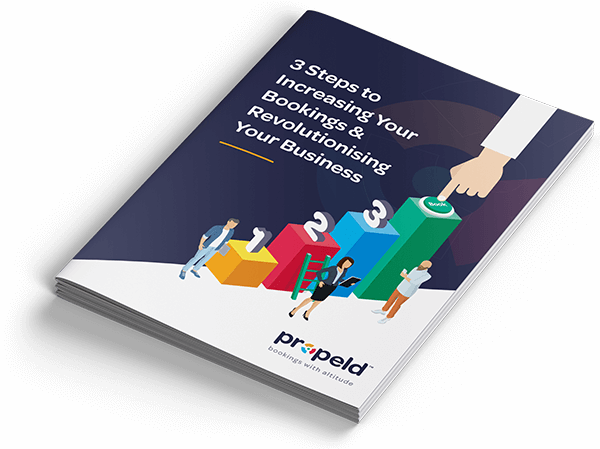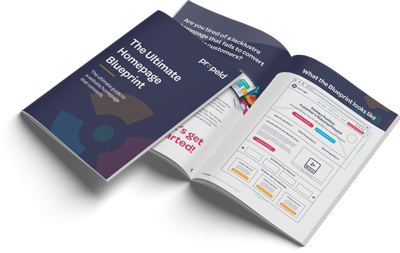There’s no doubt that you have heard of Search Engine Optimisation or SEO.
It’s an area of digital marketing that can be complicated to business owners and marketers. There are also plenty of agencies providing false information or misleading claims about their ability to rank your site.
Increasing the search visibility of your website, and your brand should be high on your list of marketing priorities.
Why?
Well, for each of the sites we manage organic search is the number one driver of traffic to the websites. It’s also the highest converting channel, with a higher percentage of enquiries coming through this channel than the others.
As a business owner or marketer, you need to make sure you can maximise this channel by delivering qualified traffic to the site.
Understanding the Search Engine Result Pages (SERPs)
Before I get into explaining how you can increase your website’s search visibility, I’ll explain the different types of search engine results that Google displays.
In the example below I’ve searched for ‘Best Great Ocean Road Tours’, these are the results that were displayed.
Google Ads

The first items displayed on the search engine result page (SERP) are Google Ads. These ads are being displayed because businesses have set up a campaign targeting the keywords I have searched, and they are spending money to get listed at the top.
Businesses are given different tools to increase the size of their Ads listing, meaning that their ads take more room of the SERP.
Google Business Listings

The second set of listings on the SERPs are the Google Business Listings. These are essentially the same as old school Yellow Pages listings, except you don’t need to pay to be displayed here. Google offers this service for free.
There are some useful features included in the Google My Business tool which I’ll dig a little deeper in to.
Organic Search Results

These results are based on the website that ranks for the search terms I have used. There are a lot of different factors that go into rank a site for organic search, including:
- Page content
- Headings
- Length of Text
- URL structure
- Image Alt Tags
- Website speed
- Website/Domain authority
- Internal links
When trying to increase your organic ranking, focus on creating content that your audience wants to read or needs information about.
Google’s ‘people also ask’ suggestions (featured snippets)

The ‘people also ask’ listing appears to suggest alternative content for searchers to view. These are in the form of questions and answers. Google shows an excerpt of the answer from the website they deem most correct.
3 ways to boost the search visibility of your website
Now that we know how Google SERPs work let’s look at 3 simple ways you can increase the search visibility of your website. They include:
- Optimising your Google Business listing
- Updating your copy, so it’s easy to skim read
- Writing content that your audience wants to read.
Optimise your Google Business listing
If you haven’t already, then you will want to claim your free business listing with Google. As the SERPs results shows these listings appear close to the top of the page and provide more information about your business than a normal listing.
To get started with Google Business Listing go to business.google.com/ and start the process of claiming your business. Note that you will need to verify your business either by phone or postal mail before you can fully optimise your listing. Once your listing is fully verified you will be able to update the listing with relevant information to your business.
Things you can update on your listing include:
- Business Description
- Business Hours
- Phone Number
- Website URL
- Appointments/Booking URL
- Products
- Services
- Photos of your business
- Posts about your business
It’s important that you keep all these details up to date so that it doesn’t become outdated.
To get the most of your business listing I recommend updating your business with a new post every week as this has been proven to increase search visibility, compared to businesses that don’t post regularly.
Click here to learn more about optimising your Google My Business listing.
Update your copy so it is easy to skim read
People don’t read every word on your website, in fact, only about 16% of people read word-to-word for what is on your site. Instead, they scan your pages looking for relevant information to their needs.
If a page can’t be scanned, then visitors are less likely to stay and read your content and they’ll bounce off your site. Bouncing off a site is a signal to Google that your site isn’t providing the best content for users. As a result, it drops the rank of your site.
Formatting your website’s content so that it is easy to scan provides two positives:
- It means that visitors will be able to find the information they are after and stay on your site for longer.
- Google and other search engines will be able to understand your page better as the formatting will indicate what the most important parts of the content are.
Some ways to format your content so that it is easy to digest include:
- highlighted keywords, by using styles like bold, italics, colours and underlining.
- meaningful sub-headings, that capture users’ interest and keeps them reading.
- Numbered and bulleted lists.
- Keep paragraphs short so that they can be easily skim read.
- Use easy to understand language so you don’t confuse your site’s visitors.
Write content that your audience wants to read
In order to increase your search presence, you need to publish more content to your site and this is where your site’s blog can come in. A blog is a section on your site where you can publish articles that your intended audience would find interesting.
These articles are then listed on Google so that people can find them.
However, one of the common concerns I get from clients is that they don’t know what to write. My advice is fairly simple, write content that your target audience will want to read. To do this you need to understand who your target audience is. If you don’t have a good question of who they are then you can use the resources in this article to help you figure it out.
If your target audience has interests in fishing or attending events, then you need to write content around these topics to capture their attention. You need to portray yourself as the local experts and as a hub of information for visiting the region you’re located in.
If you want to know where your site stands in terms of search visibility then book in for a free website audit and we’ll let you know how it stacks up. If you need help boosting the search visibility of your website, then get in touch so we can discuss what we can do for you.

